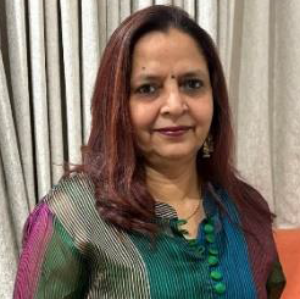Title : Prophylactic and molecular approaches for mitigating human influenza A viruses: i. Evaluating influenza vaccine effectiveness in the older population ii. Down-regulation of influenza virus genes with novel sirna-chimeric-ribozyme constructs
Abstract:
Influenza viruses continue to cause severe emerging and remerging outbreaks worldwide. Recent viral pandemics of the 2009 [pandemic influenza A (H1N1)] and 2019 (SARS-CoV-2), have enhanced the need of vigilance for combating such emerging and re-emerging viral outbreaks and mitigate the global socio-economic losses. Flu vaccination has been considered effective for older population (individuals aged 65 years or more). The growing age imposes a higher risk to older population and makes them vulnerable for developing serious complications. In one of our studies, we evaluated the effectiveness of inactivated trivalent split influenza vaccine, VAXIGRIP in elderly population. The vaccine was administered to individuals who had no history of flu or flu vaccination at least a year prior of the date of vaccination. Antibody titres against influenza strains A/H1N1, A/H3N2 and B were assessed by HAI and MN assays, pre- and post- vaccination (after 21 days, 3 months, 6 months and 9 months of vaccine administration) to determine existing and vaccine influenced antibody titres in old individuals. We found that the VAXIGRIP conferred protection to the elderly for about 6-9 months, with a requirement of a booster dose within 9 months of the vaccination. The need towards better preparedness against unprecedented viral outbreaks led us to investigate gene silencing mediated inhibition of viral replication in mammalian cells and BALB/c mice. The synergistic effect of siRNAs and ribozymes by constructing siRNA-chimeric-Rz molecules specific to M1 gene transcripts was analyzed. The chimeric constructs consisted of small hairpin siRNA joined by a short intracellular cleavable linker to a known, hammerhead ribozyme (Rz). Wild type and mutated versions containing alterations either in siRNA or Rz were tested. The entire wt construct showed 67% reduction of RNA levels in cells. The mt-siRNA-wt-Rz construct showed 33% gene silencing effect, while the wt-siRNS-mt-Rz exhibited 20% reduction M1 RNA levels. This wt chimeric construct showed an impressive >80% protection against influenza virus in BALB/c mice and was much more effective than the selectively disabled mutant constructs. The virus titre in mice lung tissues was done by plaque assay, real time RT-PCR, and western blotting. The reduced viral plaque forming units in the mice lungs indicated potency of the chimeric constructs. Additionally, the animal survival assay demonstrated a dose-dependent efficacy. Our results validate the siRNA-chimeric-ribozyme constructs as potent protective agents against lethal influenza A virus challenge. Two important strategies to circumvent emerging and re-emerging influenza virus infections in human population were investigated: Vaccination for better preparedness and disease outcomes & proof-of-concept of an effective antiviral approach against one of the major viral diseases of epidemic or pandemic potential.



